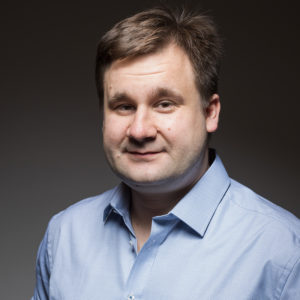Polish public aid institutions supporting innovative enterprises have a wide range of measures that allow startup to finance the first months of its business activities. Such mechanisms include projects under Measure 2.5 Acceleration Programs, Poland Prize program or Startup Platforms. If a startup fits into the areas of a particular accelerator or program operator, then it can receive even up to several hundred thousands of Polish zlotys for its development – usually without the “dilution’ of the current shareholders.
The question arises, what to do next? How such a startup with not fully developed product, and thus with no possibility to finance the product’s development by selling or licensing it further, can receive support to refine the product and mark its presence on the market?
In most cases it depends on how startup is planning the further development of the product. If it involves R&D works, then the startup may arouse interest of Bridge Alfa funds, i.e. VC funds investing their private funds as well as funds received from the National Centre for Research and Development (NCBR). NCBR is an important institution that stimulates the development of researches that have a direct impact on Polish economy. It seems that NCBR goal is not only to help finance such activities but also to implement them to the market. Bridge Alfa program focuses on the first of the abovementioned goal. The funds can offer an investment in startup at the value of 1.000.000,00 PLN, but it is usually done by the acquisition of newly created shares.
In case of larger projects, i.e. combined both R&D works and works related to implementing them to the market, a startup can take part in the competition under the Fast Track program. Depending on the specifics of the activities, startup’s scale, and whether it is going to co-operate with research institutes and other consortium members, it is possible to obtain co-financing at the value of even up to several dozens of millions of Polish złotys. Thus, it is a substantial support also for an entity which is able to demonstrate the possibility to finance part of its activities from its own resources. Therefore, the Fast Track is often chosen by entities that want to develop an already existing product or are close to complete R&D works related to it. It is worth mentioning that in case of the Fast Track, it should be ensured that the scientific results of R&D works are made public within conferences or scientific articles in peer-reviewed journals. This is due to the act that the project shall not infringe competition by means that the innovation was co-financed by public funds, making it difficult for others to make use of the knowledge acquired during the researches.
An important role in Polish enterprise support system plays the Polish Development Fund (PFR). PFR is called ‘fund of funds’ for a reason. PFR transfers considerable public funds after thorough analysis of ideas and also conducts extensive training activities. Through PFR programs a startup can get valuable advisory support and increase its recognizability in the investment areas. For example: the program called Companies of Tomorrow is a program that allows to get information from specialists on how to improve business models, use new technologies or digital tools. The program called an Innovative Maturity Verification allows to determine on what stage of innovativeness a particular entity is and therefore get recommendation for further actions. This knowledge helps to apply in competitions that reduce the costs of IP protection, e.g. in the field of patent or utility model claims.
For startups with intention to expand into foreign markets, programs that allow to partly finance marketing activities conducted abroad, e.g. costs of participation in conferences or exhibitions, may be interesting. Additionally, the Polish Agency of Investment and Commerce (PAIH) can help to prepare a list of business partners that are worth contacting with. Thus, instead of searching potential customers by your own, you can ask professionals to do it for you. Many advisory activities are considered to be a public aid, but such an aid does not involve reducing the funders impact on the company, as the value of these services is co-financed by the startup from its own resources in a really small part.
In investment matters PFR and NCBR cooperate with almost every influential Polish VC fund. These funds search for interesting startups that fit their investment policies and financial capabilities on their own. Therefore, it is worth participating in branch meetings and startup events in order to meet the investors during networking. If your idea has potential one of the funds will definitely contact you and want to talk about the investment. Usually, the first investment is in a range from one to ten million Polish zlotys, but there are also much higher investments. For example, NCBR Investment Fund ASI S.A. (a fund that allows National Centre for Research and Development to cooperate with private venture capital funds) can carry out investments even up to 64 million PLN, which, in Polish economic reality, is a value that allows to secure dynamic development of startup for several years.
The Polish investment environment is one of the most developed in Central and Eastern Europe. In addition to the financial input, Polish startups can count on mentoring and advisory support, networking, support from research institutions and assistance in foreign expansion. Much depends on the startup plans, but remember that funds for your further development are often at your fingertips!










